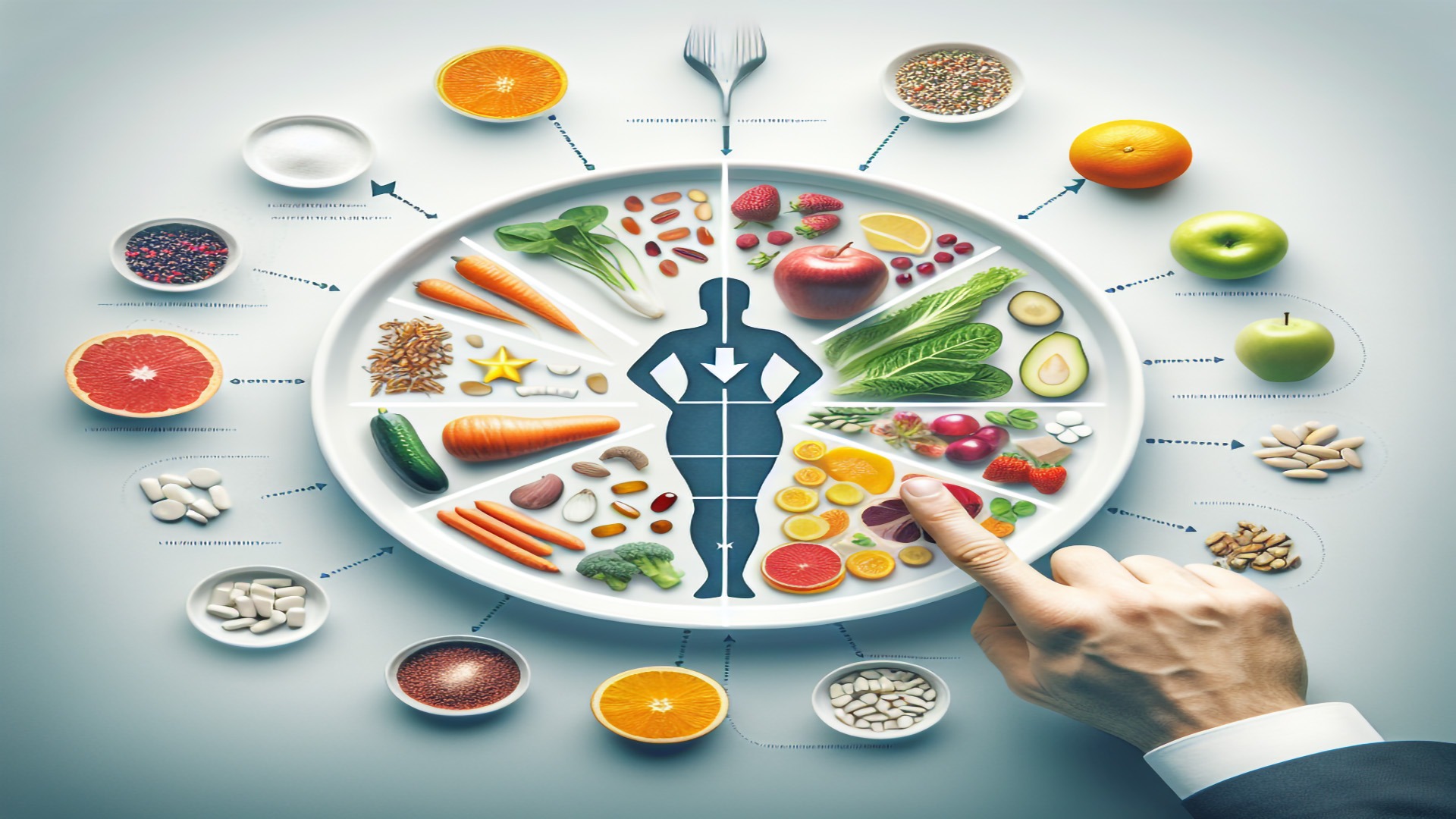
Micronutrients and Weight Loss: A Comprehensive Guide
In the quest for successful weight loss, much emphasis is often placed on macronutrients – proteins, carbohydrates, and fats. However, there is another crucial piece of the puzzle that is frequently overlooked: micronutrients. These tiny but mighty nutrients, which include vitamins and minerals, play a vital role in our overall health and can significantly impact our ability to lose weight and maintain a healthy lifestyle. In this comprehensive guide, we will explore the essential role of micronutrients in weight loss, how deficiencies can hinder progress, and practical strategies for incorporating these nutrients into your diet.
Understanding Micronutrients
Micronutrients are essential compounds that our bodies require in small amounts to function optimally. They include phytochemicals, vitamins, minerals and antioxidants. Despite being needed in minute quantities, micronutrients are involved in countless bodily processes, from energy production and metabolism to immune function and bone health.
While macronutrients provide the bulk of our energy and are the building blocks for tissues, micronutrients are the catalysts that enable our bodies to utilize these macronutrients effectively. Without adequate micronutrient intake, our metabolic processes can be impaired, leading to a host of health issues and hindering our ability to lose weight.
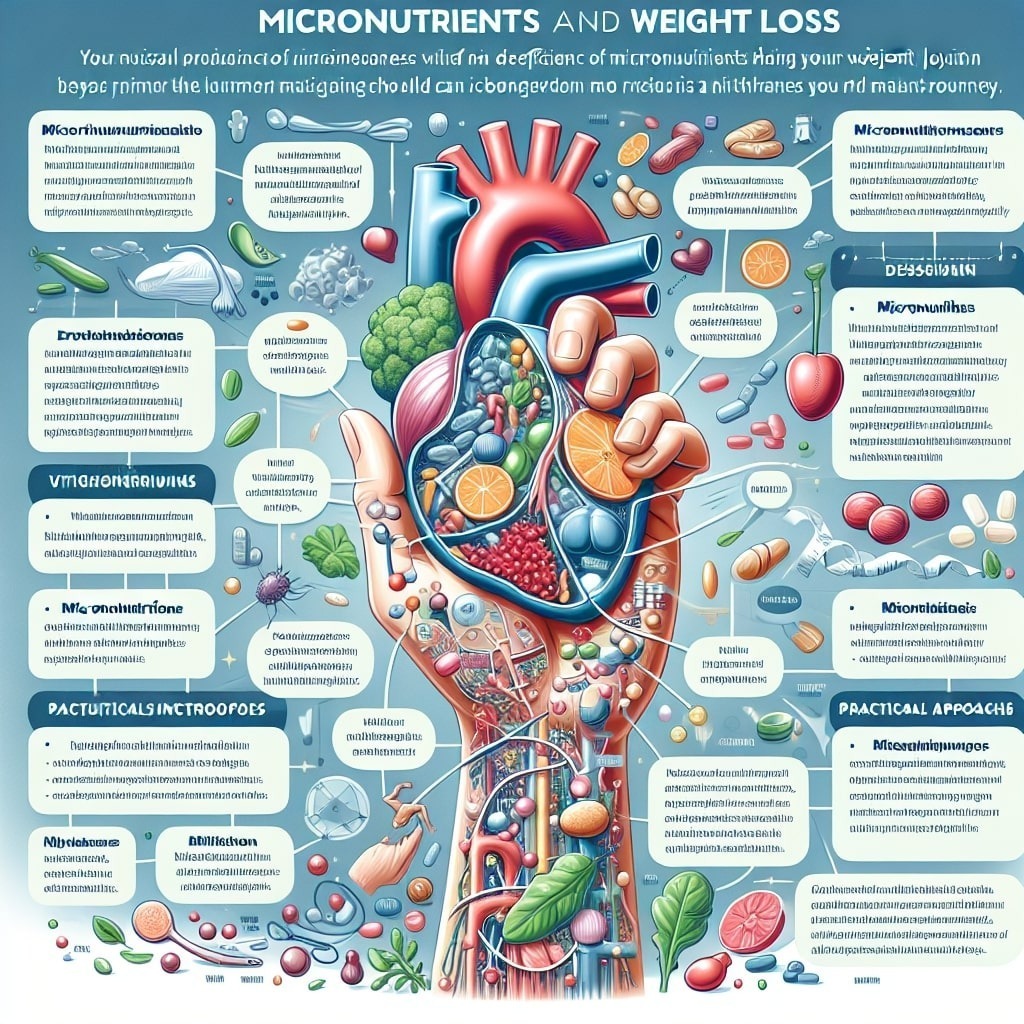
The Link Between Micronutrients and Weight Loss
Research has shown that micronutrient deficiencies can contribute to weight gain and make it more challenging to lose weight. For example, a deficiency in vitamin D has been linked to obesity and difficulty in losing weight. This is because vitamin D helps regulate insulin sensitivity and inflammation, both of which play a role in weight management.
Similarly, a deficiency in iron can lead to fatigue and decreased physical performance, making it harder to engage in regular exercise – a key component of any successful weight loss plan. Magnesium, another essential mineral, is involved in energy metabolism and blood sugar regulation. A lack of magnesium can contribute to insulin resistance, which can promote weight gain and make it more difficult to lose weight.
On the other hand, ensuring an adequate intake of micronutrients can support weight loss efforts in several ways:
Boosting Metabolism
Metabolism is the complex process by which our bodies convert food into energy. It plays a crucial role in weight management, as a faster metabolism can help us burn more calories and fat, even at rest. While factors such as age, sex, and genetics can influence our metabolic rate, there are several ways in which micronutrients can help boost metabolism and support weight loss efforts.

B-Vitamins: The Powerhouses of Energy Production
B-vitamins, including thiamin (B1), riboflavin (B2), niacin (B3), pantothenic acid (B5), pyridoxine (B6), biotin (B7), folate (B9), and cobalamin (B12), are essential for energy metabolism. They act as coenzymes in the breakdown of carbohydrates, fats, and proteins, helping our bodies extract energy from the food we eat. By optimizing energy production at the cellular level, B-vitamins can help rev up our metabolism and promote more efficient calorie burning.
For example, thiamin (B1) is crucial for the metabolism of glucose, the body's primary energy source. Riboflavin (B2) and niacin (B3) are involved in the electron transport chain, a process that generates ATP (adenosine triphosphate), the energy currency of our cells. Vitamin B6 plays a key role in amino acid metabolism, helping to break down proteins into their building blocks, which can then be used for energy or the synthesis of new proteins.
To ensure an adequate intake of B-vitamins, include a variety of whole grains, lean meats, fish, eggs, legumes, and green vegetables in your diet. Some excellent sources of B-vitamins include spinach, asparagus, lentils, salmon, and fortified cereals.
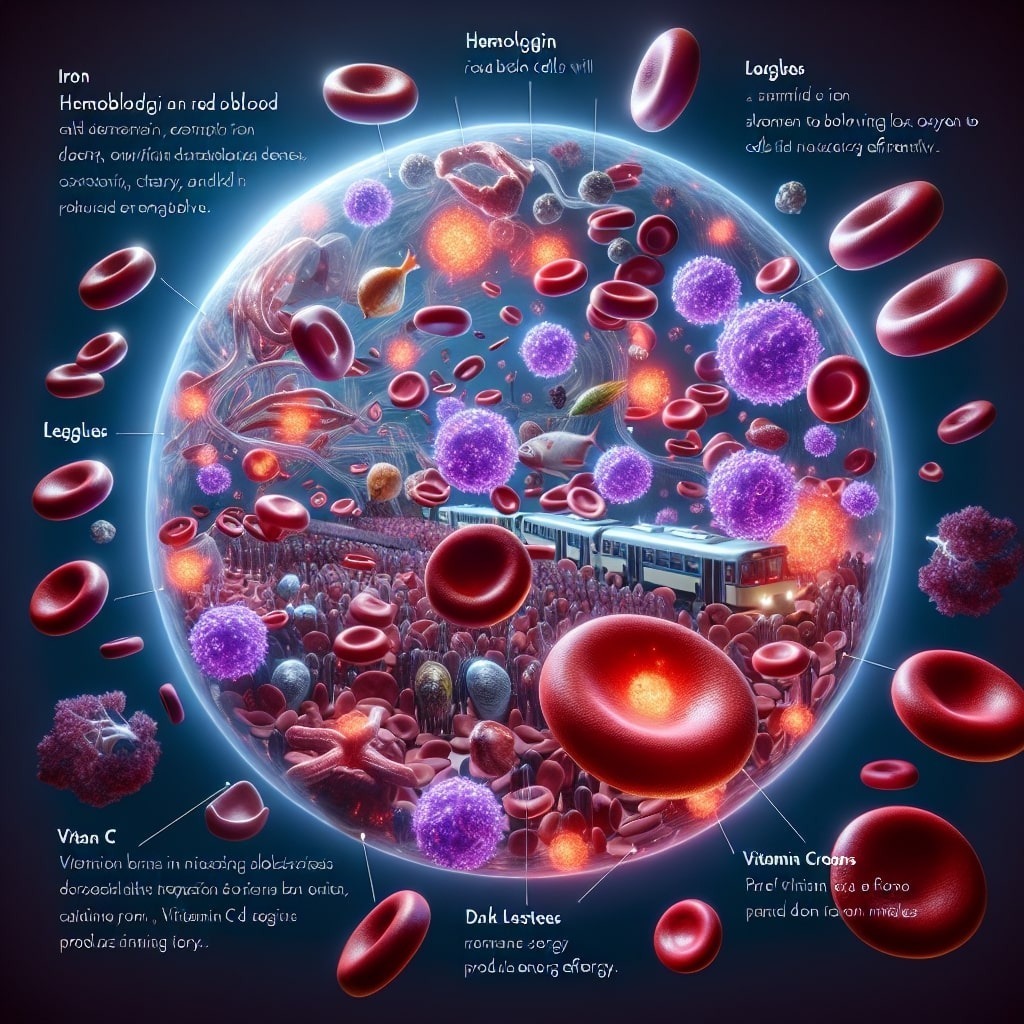
Iron: The Oxygen Transporter
Iron is another micronutrient that is essential for energy metabolism. It is a key component of hemoglobin, the protein in red blood cells that transports oxygen throughout the body. When our cells receive adequate oxygen, they can produce energy more efficiently through the process of cellular respiration.
Iron deficiency, which is the most common nutritional deficiency worldwide, can lead to anemia, a condition characterized by fatigue, weakness, and decreased physical performance. By impairing oxygen delivery to our cells, iron deficiency can slow down our metabolism and make it more challenging to lose weight.
To boost your iron intake, include lean red meats, poultry, fish, legumes, and dark leafy greens in your diet. Pairing iron-rich foods with vitamin C sources, such as citrus fruits or bell peppers, can enhance iron absorption. For vegetarians and vegans, consuming iron-fortified foods and using cooking techniques that enhance iron bioavailability, such as soaking and sprouting, can help optimize iron intake.
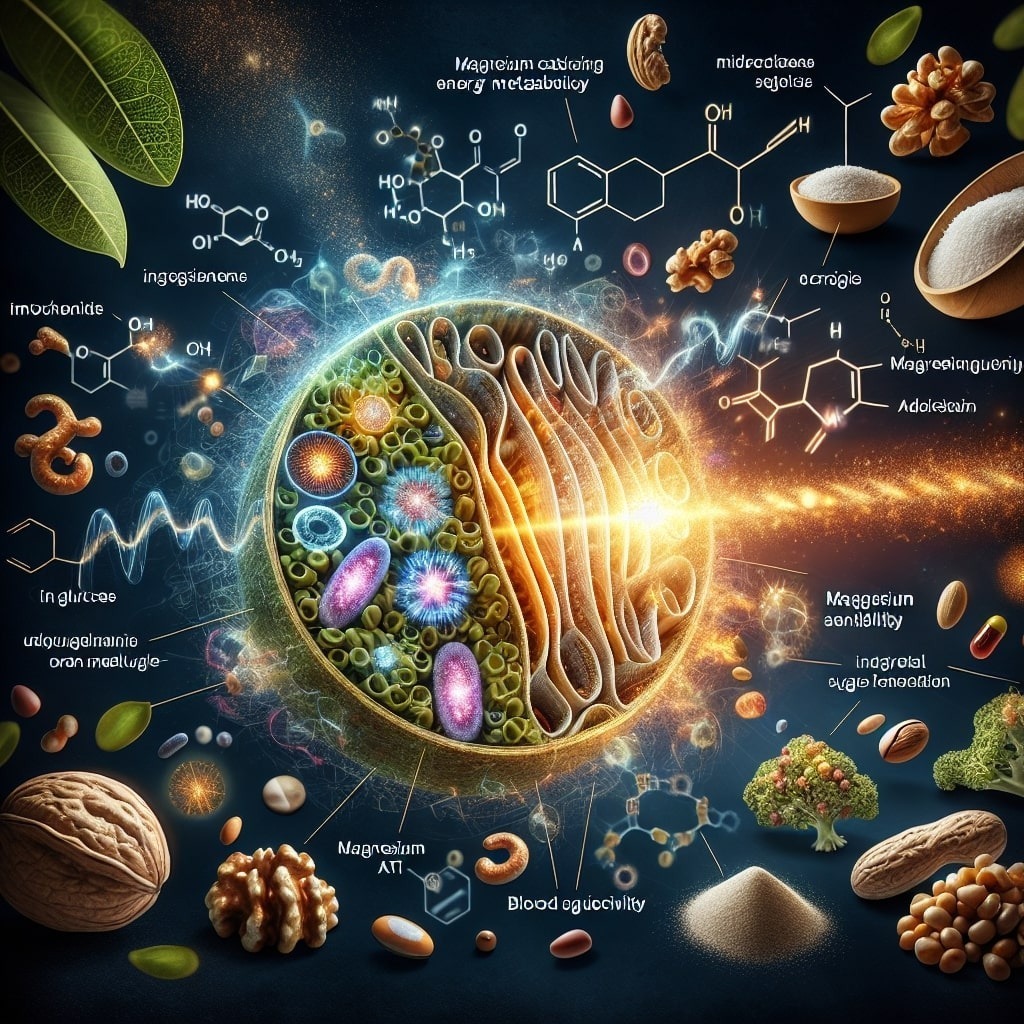
Magnesium: The Metabolic Regulator
Magnesium is a mineral that plays a crucial role in energy metabolism and blood sugar regulation. It is involved in over 300 enzymatic reactions in the body, many of which are related to the production and utilization of energy. Magnesium helps activate ATP, the energy currency of our cells, and is essential for the proper functioning of the mitochondria, the powerhouses of our cells.
Moreover, magnesium helps regulate insulin sensitivity and blood sugar levels. Insulin is a hormone that allows our cells to take up glucose from the bloodstream and use it for energy. When our cells become resistant to insulin, glucose can accumulate in the blood, leading to high blood sugar levels and an increased risk of type 2 diabetes. By improving insulin sensitivity, magnesium can help our cells utilize glucose more efficiently, promoting better energy metabolism and weight management.
To increase your magnesium intake, focus on consuming magnesium-rich foods such as leafy greens (spinach, Swiss chard), nuts and seeds (almonds, pumpkin seeds), whole grains (quinoa, brown rice), and legumes (black beans, lentils). Incorporating these foods into your diet can help ensure that you are getting enough magnesium to support optimal energy metabolism and weight loss.
In summary, micronutrients play a vital role in boosting metabolism and supporting weight loss efforts. By ensuring an adequate intake of B-vitamins, iron, and magnesium through a balanced, whole-food diet, you can optimize your body's energy production processes and promote more efficient calorie burning.
Regulating Appetite
The role of micronutrients in regulating appetite is a fascinating area of research that has gained increasing attention in recent years. While the complex interplay between nutrients, hormones, and brain signaling is not yet fully understood, studies have shown that certain micronutrients can help modulate appetite and reduce cravings, making it easier to adhere to a calorie-controlled diet.

One of the most promising micronutrients in this regard is chromium. This trace mineral has been shown to help regulate blood sugar levels and improve insulin sensitivity. By stabilizing blood sugar, chromium can help reduce cravings for sweet and starchy foods, which are often the culprits behind overeating and weight gain. Additionally, chromium has been found to increase levels of serotonin, a neurotransmitter that plays a role in regulating mood and appetite. Higher serotonin levels have been associated with reduced food cravings and a greater sense of satiety.
Vitamin D is another micronutrient that has been linked to appetite regulation. This fat-soluble vitamin, which is produced by the body in response to sunlight exposure and can also be obtained through dietary sources like fatty fish and fortified dairy products, has been shown to influence the production of leptin, a hormone that helps regulate appetite and metabolism. Low levels of vitamin D have been associated with higher levels of hunger and food cravings, particularly for high-calorie, palatable foods. Ensuring adequate vitamin D intake through diet, sunlight exposure, or supplementation may help normalize leptin levels and reduce overeating.
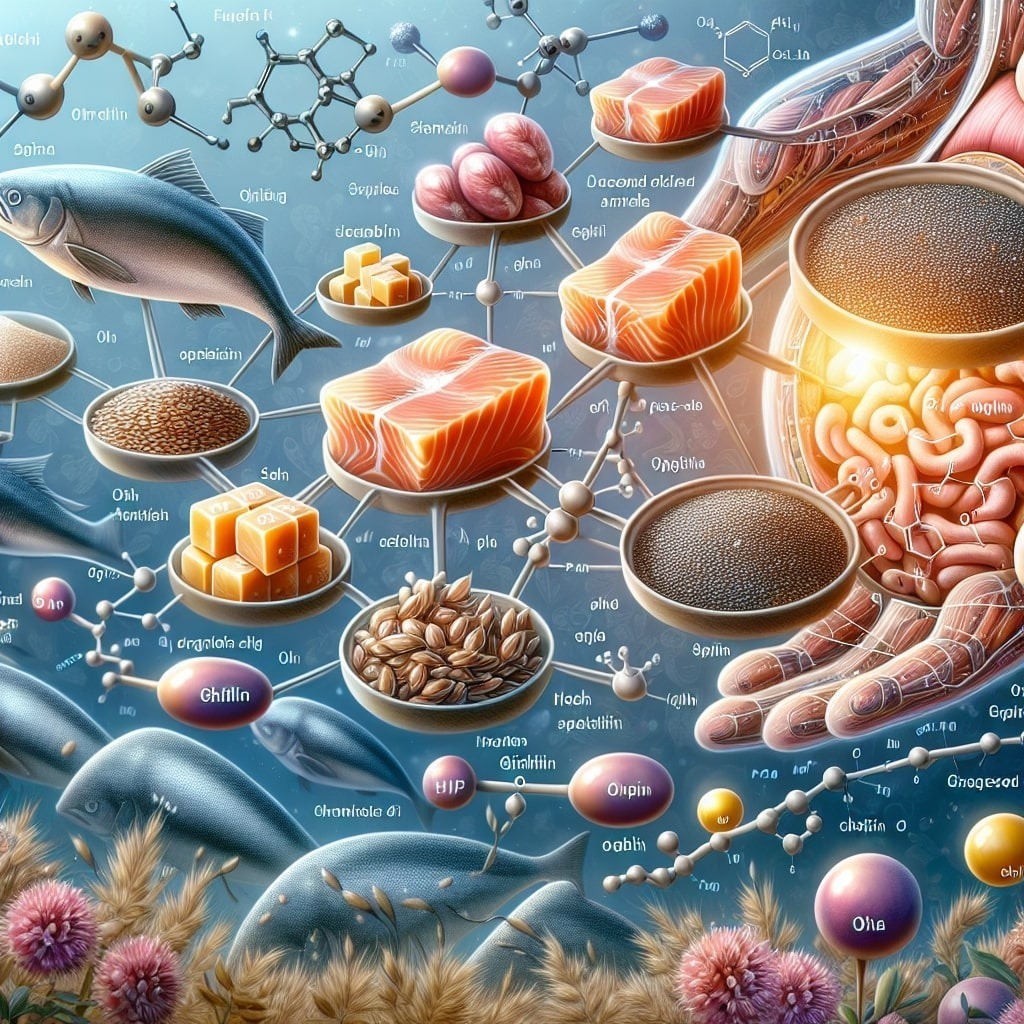
Omega-3 fatty acids, while not technically micronutrients, are another group of compounds that have been found to play a role in appetite regulation. These healthy fats, which are abundant in fatty fish like salmon and sardines, as well as in plant sources like flaxseeds and chia seeds, have been shown to influence the production of appetite-regulating hormones like ghrelin and leptin. Studies have found that individuals who consume higher amounts of omega-3s tend to have lower levels of ghrelin, a hormone that stimulates hunger, and higher levels of leptin, which promotes feelings of fullness and satiety.
In addition to these specific micronutrients, ensuring an overall balanced intake of vitamins and minerals may help regulate appetite by promoting optimal brain function and neurotransmitter production. For example, B-vitamins like thiamine, niacin, and vitamin B6 are essential for the synthesis of serotonin and other neurotransmitters involved in appetite control. Zinc, another essential mineral, has been shown to play a role in regulating ghrelin levels and may help reduce food cravings.
Incorporating appetite-regulating micronutrients into a weight loss diet can be as simple as focusing on whole, nutrient-dense foods. Chromium can be found in foods like broccoli, potatoes, and whole grains, while vitamin D is abundant in fatty fish, egg yolks, and fortified dairy products. Omega-3 fatty acids can be obtained through regular consumption of fatty fish, or through plant-based sources like flaxseeds, chia seeds, and walnuts. By emphasizing these nutrient-rich foods in your diet, you can help support healthy appetite regulation and make it easier to stick to your weight loss goals.
It is important to note that while micronutrients can play a significant role in regulating appetite, they are not a magic bullet for weight loss. A comprehensive approach that includes a balanced diet, regular physical activity, and healthy lifestyle habits is essential for achieving and maintaining a healthy weight. However, by understanding the role of micronutrients in appetite regulation and incorporating them into your weight loss plan, you can give yourself an added edge in the battle against cravings and overeating.
Supporting Exercise Performance
Micronutrients play a crucial role in supporting exercise performance, which is a key component of any successful weight loss journey. Engaging in regular physical activity helps burn calories, build lean muscle mass, and boost metabolism, all of which contribute to weight loss. However, to optimize exercise performance and recovery, it is essential to ensure adequate intake of specific micronutrients.
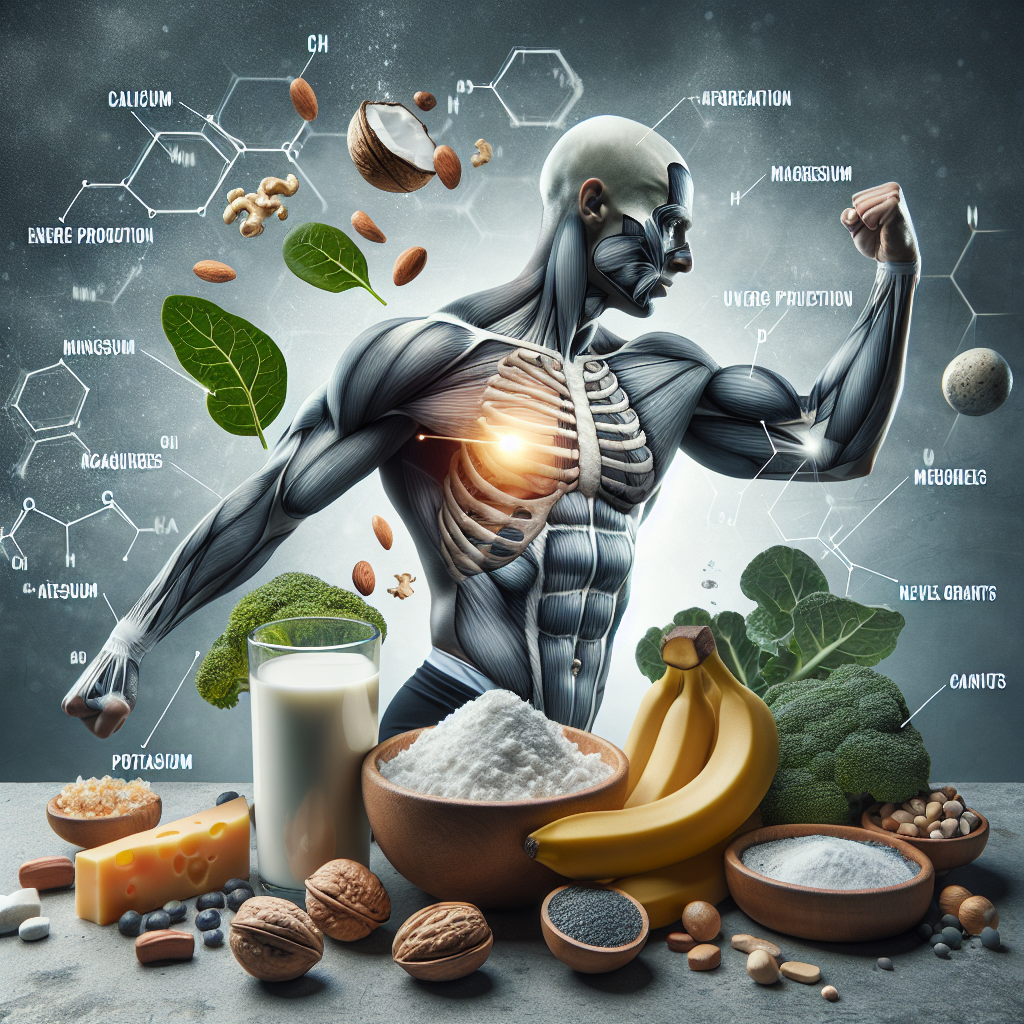
Calcium, for example, is a vital mineral for muscle function and bone health. During exercise, calcium is released from the sarcoplasmic reticulum, a structure within muscle cells, triggering muscle contractions. Adequate calcium intake helps maintain strong bones, which is particularly important for weight-bearing exercises like running or strength training. Dairy products, leafy greens, and fortified foods are excellent sources of calcium.
Magnesium is another essential mineral that supports exercise performance. It is involved in energy production, muscle contraction, and nerve function. Magnesium helps regulate blood sugar levels and supports the production of adenosine triphosphate (ATP), the primary energy currency in our cells. During exercise, magnesium is lost through sweat, making it crucial to replenish this mineral through diet or supplementation. Good sources of magnesium include nuts, seeds, whole grains, and leafy greens.
Potassium is an electrolyte that plays a key role in muscle function and hydration. It helps regulate fluid balance within cells and is essential for proper muscle contraction and nerve impulse transmission. During intense exercise, potassium is lost through sweat, which can lead to muscle cramps and fatigue if not replenished. Bananas, potatoes, spinach, and avocados are all excellent sources of potassium.
Iron is a mineral that is essential for oxygen transport and energy production. It is a component of hemoglobin, a protein in red blood cells that carries oxygen from the lungs to the muscles. Adequate iron intake is crucial for endurance exercises, as it helps prevent fatigue and supports optimal athletic performance. Iron-rich foods include lean meats, poultry, fish, legumes, and fortified cereals.
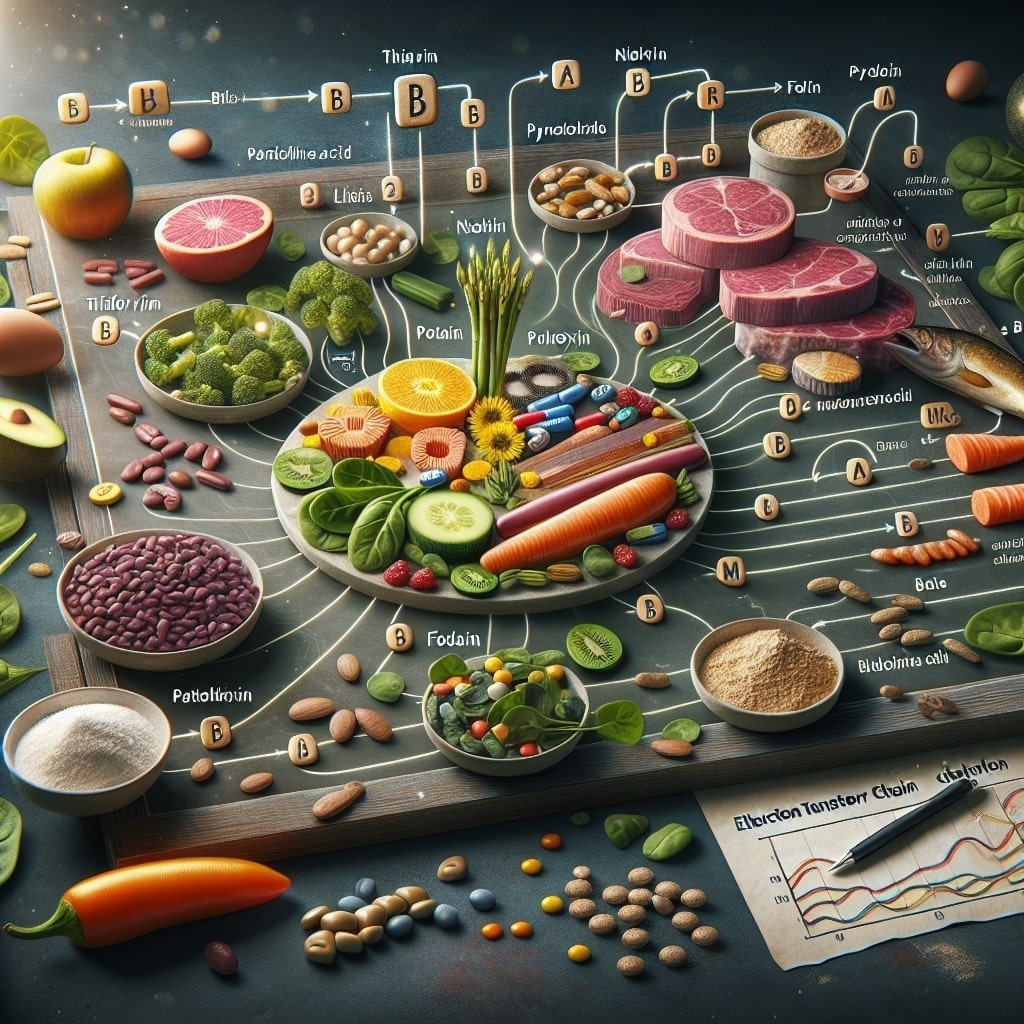
B-vitamins, particularly Vitamin B12, also play a crucial role in exercise performance. Vitamin B12 is involved in red blood cell formation, protein synthesis, and energy production. It helps maintain healthy nerve function and supports the metabolism of fats and carbohydrates. Vegetarians and vegans are at a higher risk of vitamin B12 deficiency, as this vitamin is primarily found in animal-based foods like meat, poultry, fish, and dairy products.
To support exercise performance and optimize weight loss efforts, it is essential to incorporate a variety of micronutrient-rich foods into your diet. Aim to include a balance of calcium-rich dairy products or plant-based alternatives, magnesium-rich nuts and seeds, potassium-packed fruits and vegetables, iron-rich lean proteins, and vitamin B12-fortified foods or supplements if following a plant-based diet.
In addition to a balanced diet, staying hydrated is crucial for exercise performance and recovery. Water helps regulate body temperature, transport nutrients, and remove waste products. During exercise, aim to drink water before, during, and after your workout to replace fluids lost through sweat.
By prioritizing micronutrient intake and staying hydrated, you can optimize your exercise performance, support muscle function and recovery, and ultimately enhance your weight loss efforts.
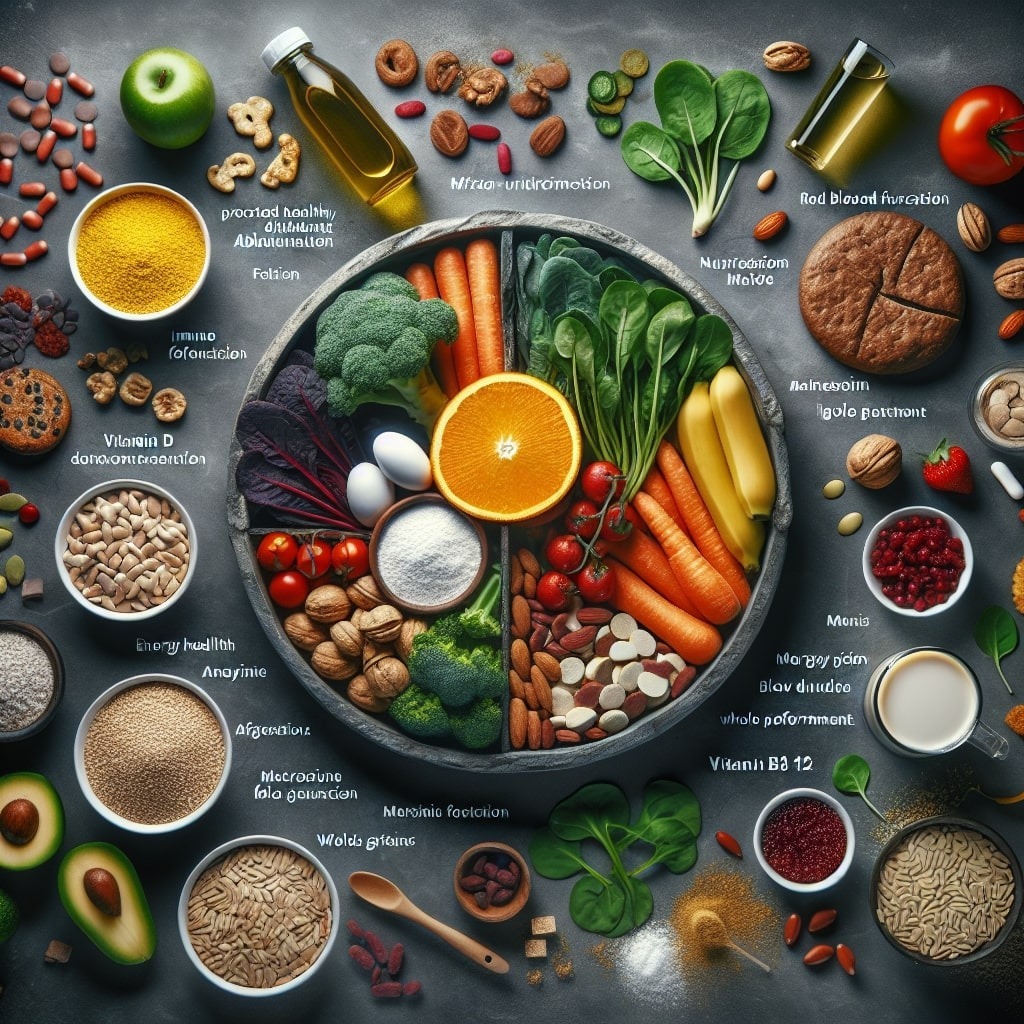
Common Micronutrient Deficiencies
Despite the abundance of food options available in modern society, micronutrient deficiencies are surprisingly common. This is often due to the prevalence of processed, nutrient-poor foods in our diets. Some of the most common micronutrient deficiencies include:
Vitamin D: It is estimated that over 40% of American adults are deficient in vitamin D. This vitamin is essential for bone health, immune function, and weight management.
Iron: Iron deficiency is the most common nutritional deficiency worldwide. It can lead to anemia, fatigue, and impaired physical performance.
Iodine: this trace mineral is essential for the production of thyroid hormones, which regulate metabolism, growth, and development. Iodine deficiency is a common problem worldwide. Symptoms of iodine deficiency include an enlarged thyroid gland (goiter), fatigue, weight gain, and cognitive impairment.
Magnesium: Many people do not consume enough magnesium-rich foods, such as leafy greens, nuts, and whole grains. Magnesium is involved in over 300 enzymatic reactions in the body and is crucial for energy production, muscle function, and blood sugar control.
Vitamin B12: Vegetarians, vegans, and older adults are at a higher risk of vitamin B12 deficiency. This vitamin is essential for red blood cell formation, neurological function, and DNA synthesis.
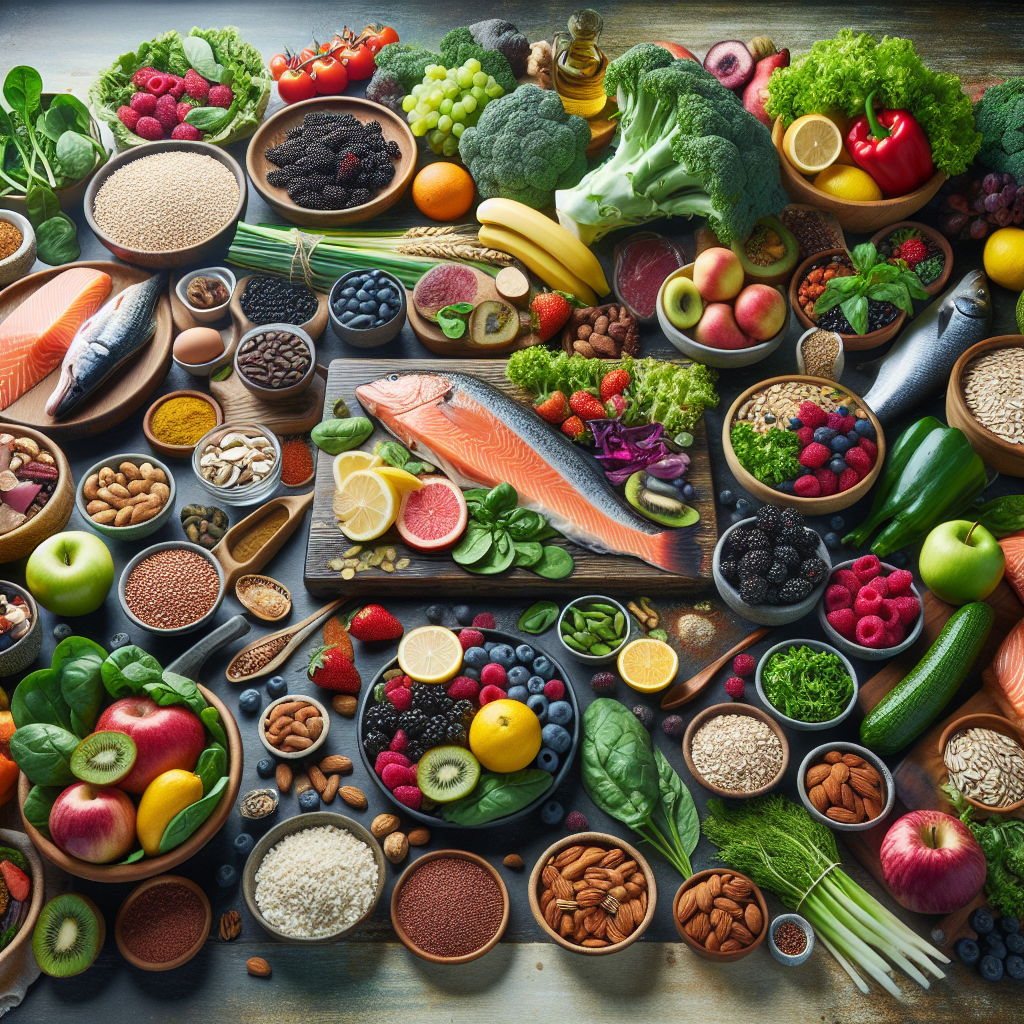
Incorporating Micronutrients Into Your Diet
The best way to ensure adequate micronutrient intake is through a balanced, whole-food diet. Focus on incorporating a variety of colorful fruits and vegetables, lean proteins, whole grains, and healthy fats into your meals. Some nutrient-dense foods to include in your weight loss diet are:
Leafy Greens: Spinach, kale, and collard greens are rich in vitamins A, C, K, and folate, as well as minerals like iron and calcium.
Berries: Berries are packed with antioxidants, vitamin C, and fiber, which can help support weight loss and overall health.
Fatty Fish: Salmon, sardines, and mackerel are excellent sources of omega-3 fatty acids, vitamin D, and selenium.
Nuts and Seeds: Almonds, chia seeds, and pumpkin seeds provide healthy fats, fiber, and minerals like magnesium and zinc.
Whole Grains: Quinoa, brown rice, and oats are rich in B-vitamins, magnesium, and fiber, which can help keep you feeling full and satisfied.
In some cases, supplementation may be necessary to address specific deficiencies or meet increased nutrient needs. However, it is always best to consult with a healthcare professional before starting any supplement regimen to ensure safety and appropriateness.
Conclusion
Micronutrients are the unsung heroes of successful weight loss. By understanding the essential role these vitamins and minerals play in our metabolism, appetite regulation, and overall health, we can optimize our weight loss efforts and achieve lasting results. Incorporating a variety of nutrient-dense foods into our diets and addressing potential deficiencies through targeted supplementation can make a significant difference in our ability to lose weight and maintain a healthy lifestyle.
 Add Row
Add Row  Add
Add 










Write A Comment